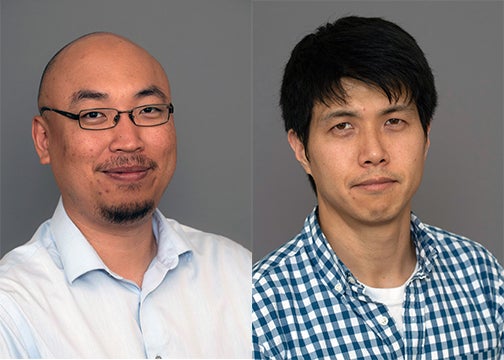“As EPA celebrates its 50th anniversary this month, we are highlighting ways the agency supports the next generation of environmental leaders,” said Jennifer Orme-Zavaleta, EPA’s principal deputy assistant administrator for science and EPA science advisor. “The P3 program helps foster environmental education among students to support the next generation of scientists and engineers working to tackle some of today’s most pressing environmental issues.”
Marshal’s winning project is titled “Nanoclay Reinforced Recycled HDPE to Replace PVC and PE Water Pipe Materials.”
“I’m very excited that Dr. Sukjoon Na and Dr. Sungmin Youn have been selected for an EPA People, Prosperity and the Planet award,” said Dr. Isaac Wait, chairman of the Department of Civil Engineering at Marshall. “This is a highly competitive grant program, and Dr. Na and Dr. Youn had their proposal selected while competing against other teams from across the country. That they were successful is an important external confirmation of the quality of their proposal and the promise of the research they have planned. The funds provided by EPA will support the involvement of a multidisciplinary student team, including undergraduate and graduate students from the Civil Engineering, Mechanical Engineering and Computer Science programs.”
Na and Youn’s project focuses on improving the material properties—particularly chemical and fracture resistance—of recycled plastics, by blending an advanced material named nanoclay. They believe that their research helps reduce waste by increasing durability of recycled plastics while promoting sustainability and waste management.
“We are living in an era of plastics, and every year we generate hundreds of millions of tons of plastic waste globally,” said Na, who teaches geotechnical engineering at Marshall and whose research interests focus on failure analysis of polymer composite materials, 3D printed polymers, geosynthetics and sustainable construction materials. “Reutilizing those used plastics can help to reduce the waste that goes to landfills. However, there are still limitations to the direct use of recycled plastics for engineering applications due to their inferior material properties.”
It’s exciting research that will provide valuable experience for Marshall’s students, said Youn, an environmental engineer with fundamental training in water and colloidal chemistry and water treatment.
“It will be a unique opportunity for our student team to contribute to environmental sustainability while gaining cutting-edge research experience,” Youn said. “We believe this project will enhance our engineering education at Marshall.”
Across the United States, this year’s EPA winners are addressing a variety of research topics including efforts to reduce microplastics waste and food waste, creating innovative and solar-driven nanomaterials, building a stand-alone water treatment system that can provide potable water for indoor use in single family homes, and removing PFAS from water using liquid extractions. These teams are also eligible to compete for a Phase II grant of up to $100,000 to further implement their design in a real-world setting.
To learn more about the P3 Phase I winners, visit EPA’s website.
The P3 program is a two-phase research grants program that challenges students to research, develop and design innovative projects addressing environmental and public health challenges. Phase I serves as a “proof of concept,” where teams are awarded a $25,000 grant to develop their idea and showcase their research in the spring at EPA’s National Student Design Expo. These teams are then eligible to compete for a Phase II grant of up to $100,000 to implement their design.
For more information about the P3 Program, visit www.epa.gov/P3.
For more information about Marshall’s Department of Civil Engineering, visit www.marshall.edu/civil-engineering.

